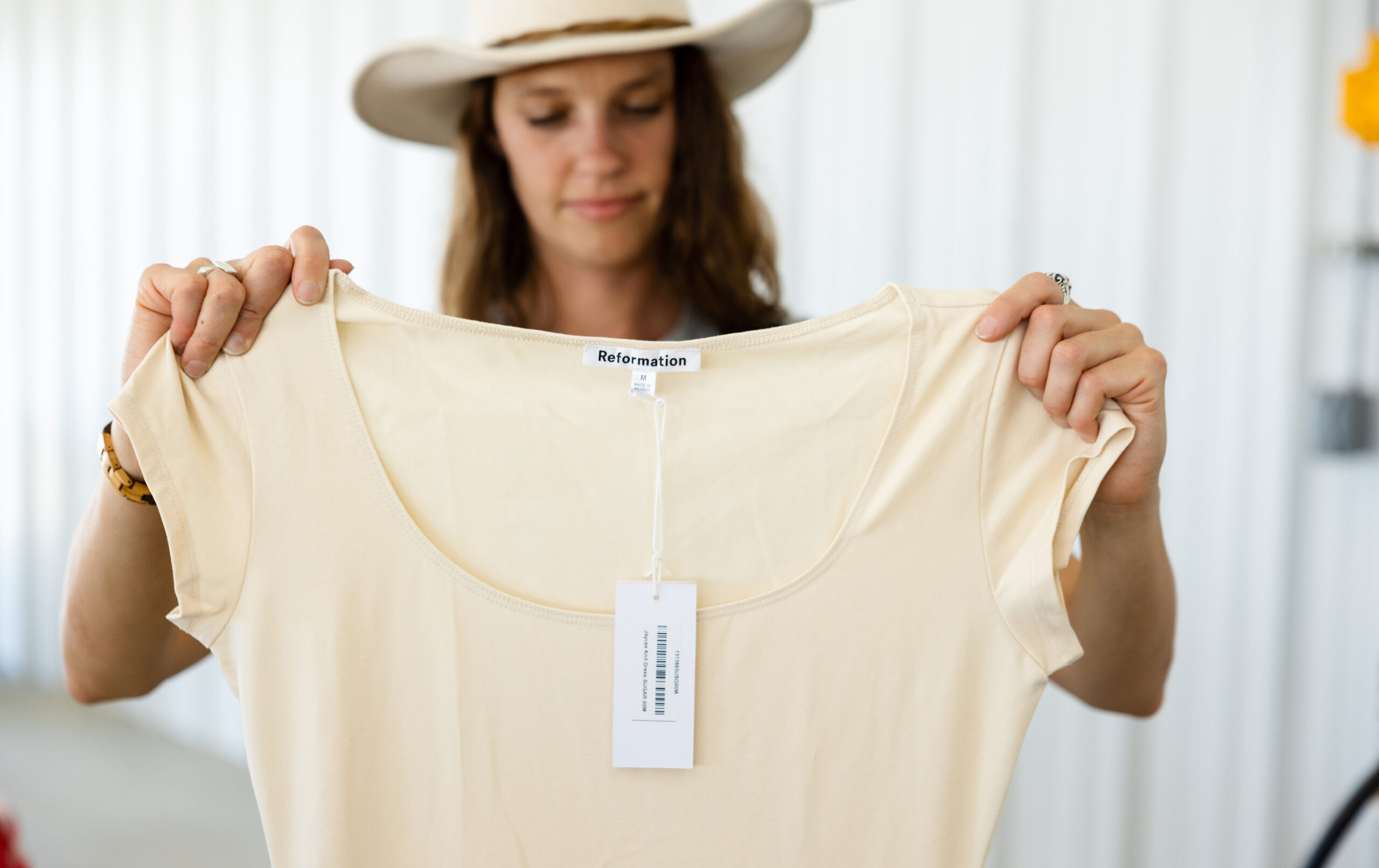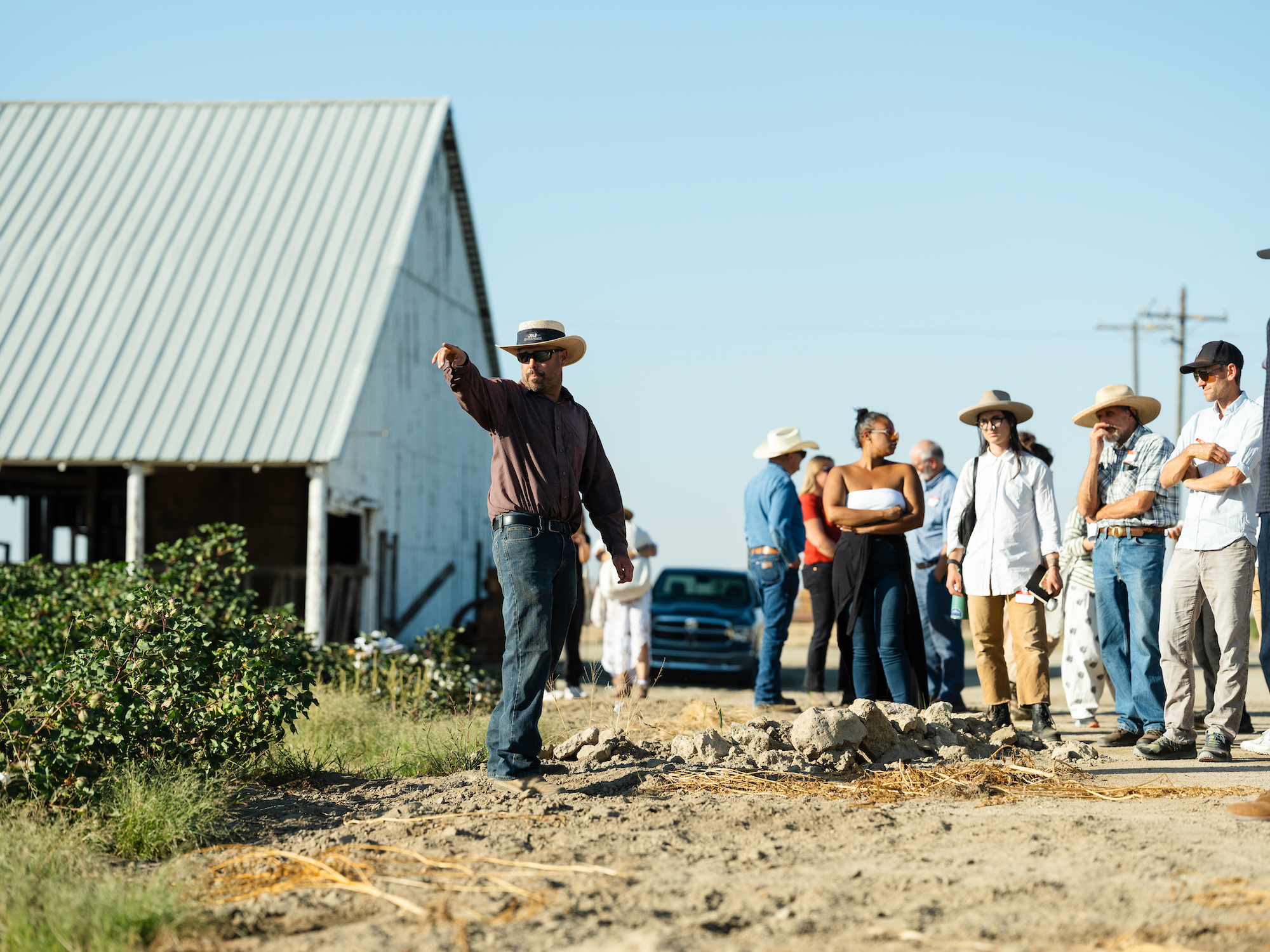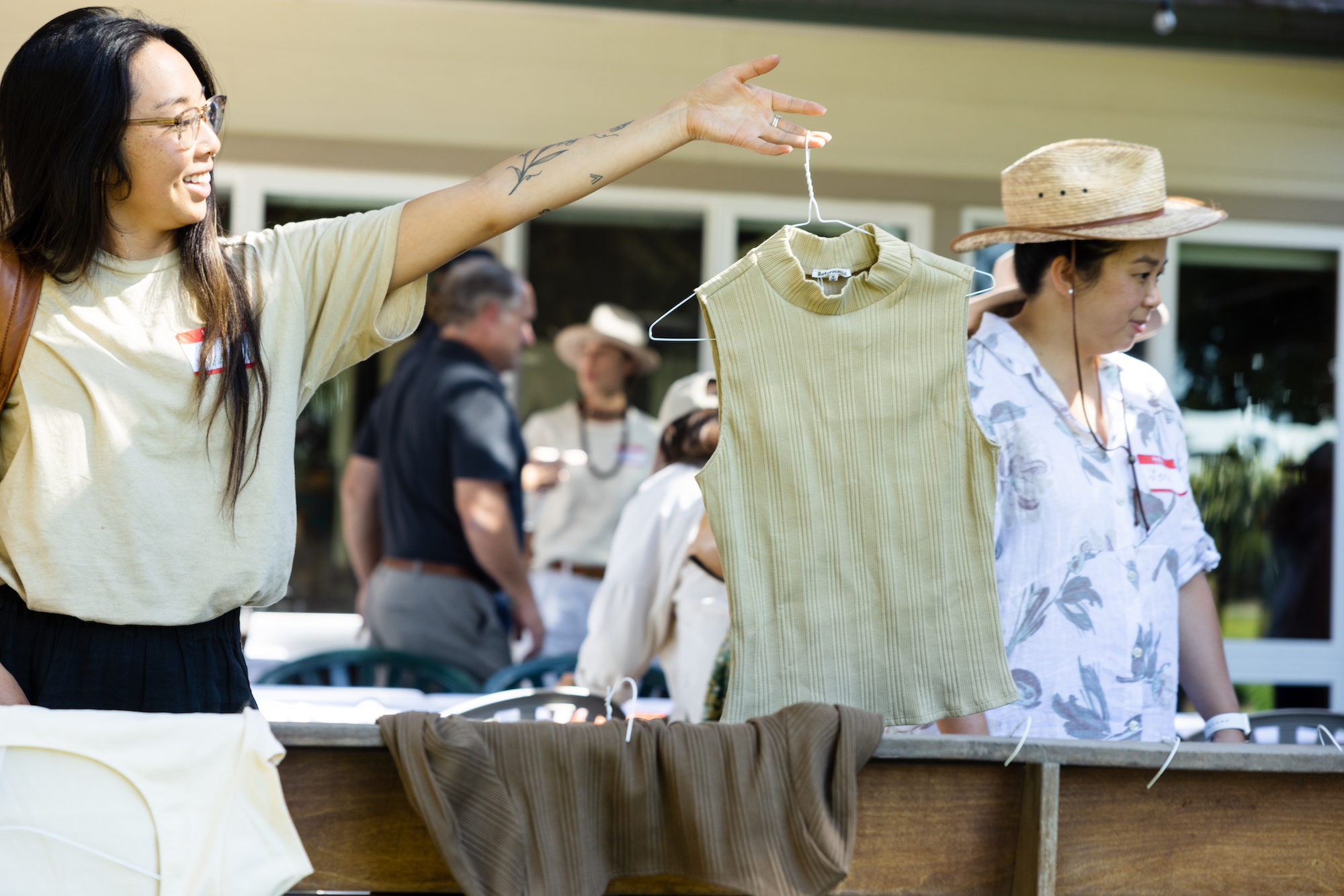
The cotton-based textile economy is in need of a values-based adjustment. Brands wield immense pricing power, sourcing materials globally, while farmers remain bound to unchanging conditions. Brands, especially larger ones, influence public opinion on sustainability, often prioritizing profits over environmental and social benefits.
This model leads to environmental degradation, low wages, and reliance on overseas markets, with hidden costs borne by ecosystems and communities. Disconnected from farmers, brands rely on uncontrollable commodity markets, hindering sustainable practices. The true value of agriculture is obscured by the demand for cheap clothing. In this scenario, brands competing for the cheapest goods prevail, leaving consumers and the environment as casualties in the pursuit of affordability.
Breaking free of this system requires deliberate choices and risk. Reformation is one clothing company stepping up to the challenge.
Reformation’s Senior Director of Sustainability Carrie Freiman Parry shares that sustainability has been central to the company since its early days, “Reformation was founded in 2009 with a mission to bring sustainable fashion to everyone. A lot has changed in the years since as we’ve grown as a business and brand, but our goal has remained the same: to have a positive impact on the planet and its people.”

First Things First: The California Cotton & Climate Coalition
As a founding member of the California Cotton & Climate Coalition (C4), Reformation is at the forefront of a movement that is asking important questions about how cotton farming can embrace soil health while decreasing its environmental and human-health footprints. Exemplary of this effort is Reformation’s new line of products that uses Climate Beneficial™️ Cotton backed by the coalition’s mission-driven verification.
The C4 is committed to agricultural practices that boost soil health, increase soil carbon capture, and decrease the use of synthetic fertilizers, insecticides and herbicides. The coalition aims to create a model for a California-based, biologically focused cotton farming system that both conventional and organic farms can utilize. Click here to learn more about C4’s story.
“C4 guided a pre-competitive yarn development program that supported brands to scaffold mill minimums at smaller volumes so that they could develop a traceable, locally grown textile with less risk than going it alone,” says Fibershed Executive Director Rebecca Burgess. “Working with a brand like Reformation is critical. Their ethos, scale, and collaborative spirit make the work a real joy.”
A Better Way Forward: Reformation’s Roots
Reformation began by selling vintage clothing out of a small Los Angeles storefront in 2009 and quickly expanded into manufacturing its own sustainable garments. Today, the brand produces limited-edition vintage-inspired apparel for individuals who want to look good and feel good while doing it.
Reformation infuses green measures into every aspect of its business. Its products are 100% carbon neutral, and the company has committed to being climate positive by 2025 and fully circular by 2030. Setting an example for the industry, Reformation remains at the forefront of innovation in sustainable fashion—running the first sustainable factory in Los Angeles, using deadstock and sustainable fabrics, tracking and sharing the environmental impact of every product and investing in the people who make it possible.

A Product to Build On
Reformation’s new Climate Beneficial™️ Cotton products are innovative, starting with healthy soils and responsible manufacturing. The garments are made from cotton that is grown and processed with environmental and social externalities in mind and backed by a rigorous verification process.
“Launching Climate Beneficial™️ Cotton is an important step on Reformation’s path towards becoming climate positive and achieving our secondary goal of sourcing 100% of fabrics from recycled, regenerative or renewable materials by 2025,” says Freiman Parry. “As a California-based brand, we’re especially excited to bring this product to market and raise awareness of how we can better support our unique local bioregion through regenerative practices that also support the people behind the cotton.”
Reformation is offering several products made with Climate Beneficial™️ Cotton: including the Delphina Knit Dress, Leighton Knit Top, Alfie Knit Tank, Branson Knit Top, and Lunette Knit Top.
By working with the coalition and developing this product, Reformation is proving it’s possible for popular brands to invest in supply chains that actually benefit workers and the environment. Consumers have the power to vote for systems change by supporting companies like Reformation, paving the way for a future where fashion not only looks good but does good, every step of the way.
—
Images by Paige Green
